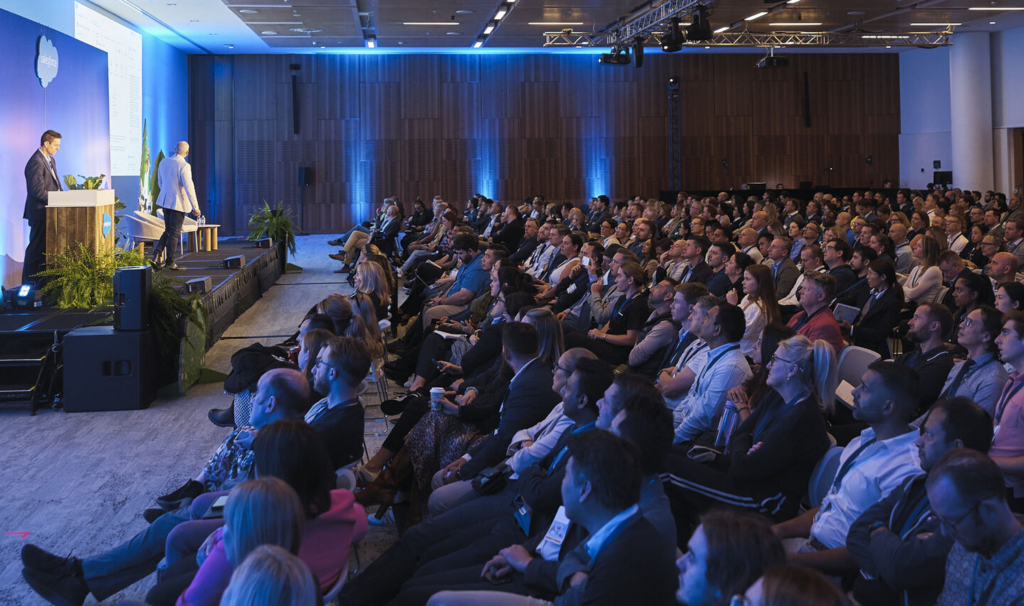Australian manufacturers have faced enormous challenges over the past 12 months, and many are reviewing and reevaluating their operations and position to create resilient foundations and robust ways of working that can support them in the coming years.
Research from the Advanced Manufacturing Growth Centre identified technology as being essential for manufacturers to set themselves up for success. Recently, that was backed up by research conducted by Industrial Ideas, in collaboration with Deakin University and Salesforce which gave a great insight into some of the areas of focus for those working in manufacturing.
Manufacturers are beginning to understand the importance of customer experience
Customers’ expectations are changing rapidly – increasing rapidly – driven by the consumer world and the consumerisation of technology. And this is reflected in the manufacturing world, too.
However, while some manufacturing organisations realise this, there’s a disconnect in others.
The research from Industrial Ideas highlighted this disconnect, finding that people working in manufacturing still view sales and marketing as being responsible for customer experience. Fifty-two percent of respondents aligned themselves with that view.
And while sales and marketing may own customer experience, they can’t be solely responsible for it. Responsibility has to extend throughout the whole of the business.
Everyone in an organisation has some input into customer experience, and increasingly businesses are appreciating that and embedding that into their culture – but there’s still a long way to go.
We’re starting to see businesses send their best people in to talk with customers, regardless of the department, and regardless of whether they’re in a traditional customer-facing role. And there are considerable benefits to that. For example, if it’s an IT person in those conversations, they have a first-hand account of what the customer needs. With the right people having the right conversations, we can start putting the customer firmly in the centre.
Technology is needed – but not just for tech’s sake
Key to embedding that 360-degree approach to customer experience is technology. It can be hugely powerful for a manufacturing business and can help bring a lot of agility to the operation.
However, there’s still a clear technology gap between the supply chain, the channel partners, the dealer network and the consumer.
We’re seeing a significant number of hugely inefficient business processes that have been created by over-engineered, bespoke technology systems and applications thrown together. Which means there’s a real opportunity for manufacturers to re-engineer their business processes around a best-practice platform. From there you’ll get tremendous velocity and speed to market.
To be effective, however, technology needs to be aligned with a strategy. You need to have a clear understanding of how to execute on it, and how to get velocity and tie it back to the return on investment.
Moving from push to pull
By taking a customer-centric approach, businesses can move from the transactional – pushing product – to an interactional approach. Customers are craving communication from manufacturing and industrial suppliers. They want to know what’s going on.
By having the technology in place to bring together marketing, sales, finance, andIT with different connection points, the relationship with the customer can only go from strength to strength. And this presents a huge opportunity because customers are buying experiences, not just products.
For example, a swimming pool manufacturer we work with has started taking photos throughout the installation process – bringing the experience to life, rather than being hidden in a manufacturing facility.
Take baby steps and start small
There’s lots of talk about digital transformation, and that can be quite daunting for some manufacturing businesses – and understandably so. We’re increasingly seeing projects start with a minimum viable product so customers can dip their feet in the water, and we can build that trust and credibility.
Several survey respondents demonstrated that they are already on the technology journey – 65% said their tech platforms were on the cloud, while 61% identified demand planning, Internet of Things and artificial intelligence as future technologies that would impact their business.
However, that also means there’s a good proportion who aren’t on the cloud or planning for the future. Thirty-nine percent found technology challenging.
Through conversations with clients, we’re seeing a growing understanding that Salesforce isn’t just a customer relationship system; it’s a business-wide system of engagement that can impact a whole organisation, end-to-end.
Having that one view of the customer, on one platform, can quickly revolutionise business processes and outcomes, drive efficiencies and, ultimately, deliver a far superior customer experience.
To learn more, including how Salesforce can deliver post-service value, build operational efficiencies, and sharpen demand forecasting, watch our on-demand webinar ‘More than a CRM: How Salesforce drives agility, relevance and profitability for manufacturers’.






